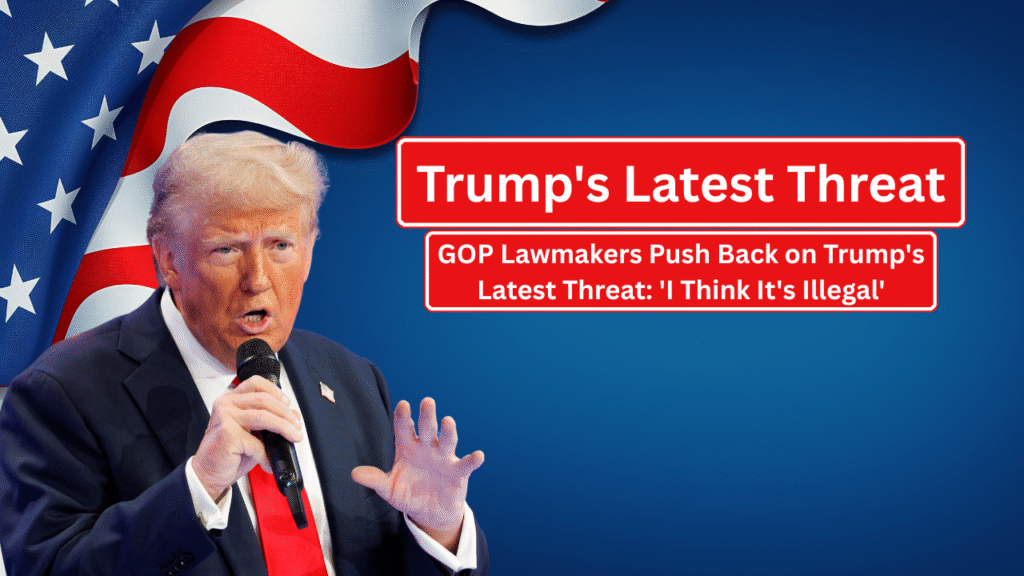In recent weeks, former President Donald Trump’s public threats to prosecute political rivals have sparked significant concern among Republican lawmakers, with some questioning the legality and implications of such actions. These developments have intensified debates over the independence of the U.S. Department of Justice (DOJ) and the potential politicization of federal law enforcement.
GOP Lawmakers Express Unease Over Trump’s Threats
Trump’s repeated assertions that he intends to use the DOJ to pursue legal action against political opponents have unsettled members of his own party. Senator John Cornyn of Texas remarked that such threats are likely “for public consumption,” suggesting skepticism about their seriousness. Similarly, Senator Rick Scott of Florida commented that Trump is “not gonna do it,” indicating disbelief that the former president would follow through.
These statements reflect a broader discomfort within the GOP regarding the potential misuse of executive power to target political adversaries. The notion of leveraging the DOJ for partisan purposes raises alarms about the erosion of democratic norms and the rule of law.
Concerns Over DOJ’s Independence
Critics argue that the DOJ’s independence is under threat as it faces pressure to align with political interests. The appointment of loyalists to key positions within the department has exacerbated fears of politicization. The nomination of individuals with strong partisan ties to oversee federal prosecutions has drawn scrutiny and concern across the political spectrum.
Legal experts warn that such moves could undermine public confidence in the justice system and set a dangerous precedent for future administrations. The impartiality of the DOJ is considered a cornerstone of American democracy, and any attempts to compromise its autonomy are often met with strong resistance.
Historical Context and Legal Implications
Using the DOJ to target political opponents is not without historical precedent, but it remains a deeply controversial issue. Legal scholars emphasize that while a president has broad authority over the executive branch, including the DOJ, this power is not unlimited and must be exercised within constitutional boundaries.
Unwarranted investigations or prosecutions motivated purely by politics could violate constitutional rights and provoke legal challenges. Such actions may also prompt legislative reforms aimed at reinforcing the DOJ’s independence and preventing future abuses of executive authority.
Public and Political Repercussions
Trump’s threats have sparked unease not only in political circles but also among the public. Advocacy groups and civil liberties organizations have expressed concerns about a chilling effect on dissent and the broader consequences for democratic governance.
As the situation continues to evolve, questions remain about how Congress will respond and what measures, if any, might be introduced to safeguard the DOJ’s independence. The challenge of balancing executive authority with accountability remains at the center of this debate.
Bottom Line
The controversy surrounding Trump’s recent comments has reignited concerns over the appropriate use of presidential power and the integrity of America’s legal institutions. Republican lawmakers distancing themselves from these threats suggests growing intra-party tension about the future of conservative leadership and the sanctity of democratic checks and balances.
For accurate and official updates on the Department of Justice’s operations, individuals are encouraged to visit the DOJ’s website.


